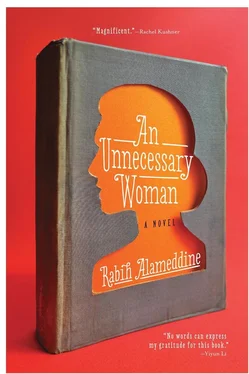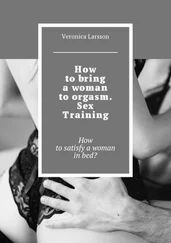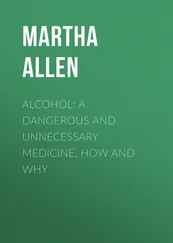I’m hesitating again about the new project. The novel 2666 , incomplete though it may be, is too big, and this morning it interests me less. However, I’m not sure I have enough time to come up with a new book to translate this late in the game unless I pick something short and easy. Can I risk missing the rite of beginning a translation on the first of January? I wonder if I’m able to break my own rules. The rules are arbitrary. I recognize that, but I also know that they make my life work; my rules get me through the day. If I have to, I can begin the translation on another date and the world will not reverse on its axis. I’ll not lose any more sleep than I already do if I postpone. Still, I prefer to stick to what I know, creature of habit and all that.
Maybe my epiphany is that I can begin a translation in the second week of January this time. Maybe this epiphany will excite me after I have my tea.
I light the flame under the kettle.
I decide that I must make a decision this morning about which book to work with. Uncertainty is unsettling.
Whispery light begins to disperse the shadowy forms outside my windows. A garbage truck leaves my street and takes its howling ruckus with it. Nothing to be heard now but the childish pitter-patter of rain. The streetlamp flickers its bulb in a short tantrum, gathering a blush of carnation pink and russet before turning off for the day. The air in the kitchen still feels somber and damp. I carry my tea to the reading room, sit in my armchair, and drape the quilt over my legs under the mohair coat.
My doorbell rings and I am disoriented. I must have fallen asleep in my chair. How long has it been since that happened? I can’t tell what time it is, can’t read the clock without my eyeglasses. The light is high. Eight o’clock? The doorbell buzzes once more. I put on my glasses. The cup remains on the side table, next to the vase and the seven books of the Muallaqat, the tea untouched and obviously cold, not a wisp of steam rising from its surface. I’ll not open the door. Not this time. I’ll not let the world in. Is this going to be a daily ritual? Let’s disturb Aaliya’s morning, jumble and upend it. Tous les matins du monde.
Whoever is outside knocks on my door, an insistent knock. It’s not my half brother the eldest, though. This knock is well mannered.
“Aaliya,” I hear Joumana’s muffled voice call from outside. There is urgency to her call. “Open up, please!”
I jump out of my chair — well, what would be considered a jump at my age. My knee buckles, almost sending me sprawling across the carpet. I steady myself at the reading room’s door. My hand leans against the jamb and I find myself face-to-face with the unframed circular mirror. I avert my eyes, of course, but I make a decision to clean it before the day is done, at least dust it off.
“She must be inside,” Marie-Thérèse says. “I didn’t hear her leave this morning. I’d know if she did.”
I rush to the door. I hear Fadia on the stairs, coming from below, not above. The world is upside down today, topsy-turvy.
“I’ve shut off the water,” says Fadia, the loudest of all. She has yet to reach my landing. I hear the hurried stomping of her clogs approaching.
“Aaliya!” she screams just as I open the door. My face encounters the full force of her voice, and of December’s cold.
The three wet witches jostle into my foyer, they speak together, all at the same time, high-pitched Disney-like chatter, and I’m flummoxed and confused. If Fadia’s housedress swept the floor the last time she was here, today her purple one mops it. The hem is so damp she looks as if she’s just waded out of a river. But I hear the word flood , and just above the bridge of my nose, just under the skin, I feel a nerve snap. A lump grows in my throat, an anchor weighs down my heart. I feel my ears shut off. I do not wish to hear.
Haphazardly soggy, the witches surround me, orbit me like planets on Dexedrine, talking, talking, talking. A water pipe — maid’s bathroom upstairs in Joumana’s apartment — flood — no danger anymore — plumber’s been called — they hope I don’t have anything valuable stored in my maid’s room.
Anything valuable? Valuable? My crates, my crates and crates, my life — they know nothing of that.
I run — yes, run — through the kitchen to the maid’s bathroom. I smell the damp before I open the door, like a woolen sweater in the rain, like the smell of Nancy’s damp pink sweater draped over the top of the heater, steaming, I’m steaming. Nausea punches my stomach from inside and out. The knob doesn’t turn all the way on the first try because my hands are too clammy. I swing the door open and witness the damage. The stink assaults me physically, and I recoil and stagger a step; the stench wallops me, bashes my nose, sour, musty, my mother. My heart behaves strangely, wishing to object. I feel an urge to regurgitate.
Hail horrors, hail
Infernal world! and thou, profoundest Hell.
My neighbors sidle up to me, too close.
There is some water on the floor, but not too much. Most of what has passed through the maid’s bathroom continued on its journey toward the swale of the drain. The water that insisted on remaining, though, chose to do so among my papers. Every crate is wet.
There’s no longer any need to panic. It is done.
If it were done when ’tis done, then ’twere well
It were done quickly.
It was most certainly quick.
On wobbly legs and exhausted knees, I walk through to the maid’s room. There is no hope. Dark though the maid’s room is, I need not see. The smell of water damage is acute. The seven mouths of the Nile have poured their wares in here. My soul screams, my voice is mute. I am now destitute.
Who among the angels will hear me if I cry? I stand in the dank and the dark, amid my wasted life, not knowing what to do, unable to make any decision, and weep. My hopes were extinguished a long while ago, and now any tinder of dignity follows suit. Whatever remains of my self-worth seeps out of me, flows out of me, and follows the water down the drain.
Everything has gone and left me and I don’t know what to do.
I face a battle that has been over for a long time. I accept defeat with no white flag to wave, with no strength even to unsheathe my sword.
Into the valley of Death
Rode the six hundred.
Degradation is my intimate. Like Job’s, my soul is weary of my life. Snot falls from my nostrils; I wipe it and the tears with the sleeve of my mohair coat — the sleeve of my tattered, unwearable coat.
I don’t know how much the three witches can see, but I’m horrified that they know I’m crying, which makes me cry more, and louder.
My soul is fate’s chew toy. My destiny pursues me like an experienced tracker, like a malevolent hunter, bites me and won’t let go. What I thought I left behind I find again. I’ll always be a failure, then, now, and forever. Fail again. Fail worse. I witness my life’s collapse.
Shadow that hell unto me.
Cursed is this world and cursed is all that is in this world. Cursed is this age of relentless humiliation and slapstick. Here’s your damn epiphany.
The women surround me once more, lead me by my hands and elbows out into the light. One of them, probably Marie-Thérèse, the shortest, gently pulls on my arm, forcing me to bend a bit, and wipes my face with a tissue — a tissue moist with sanitizer gel. She must have one of those miniature antibacterial bottles on her person at all times. My hands, of their own accord, escape the women’s clutches and dive into the coat’s pockets. The only thing in my pockets is a bent pair of reading glasses.
Читать дальше












